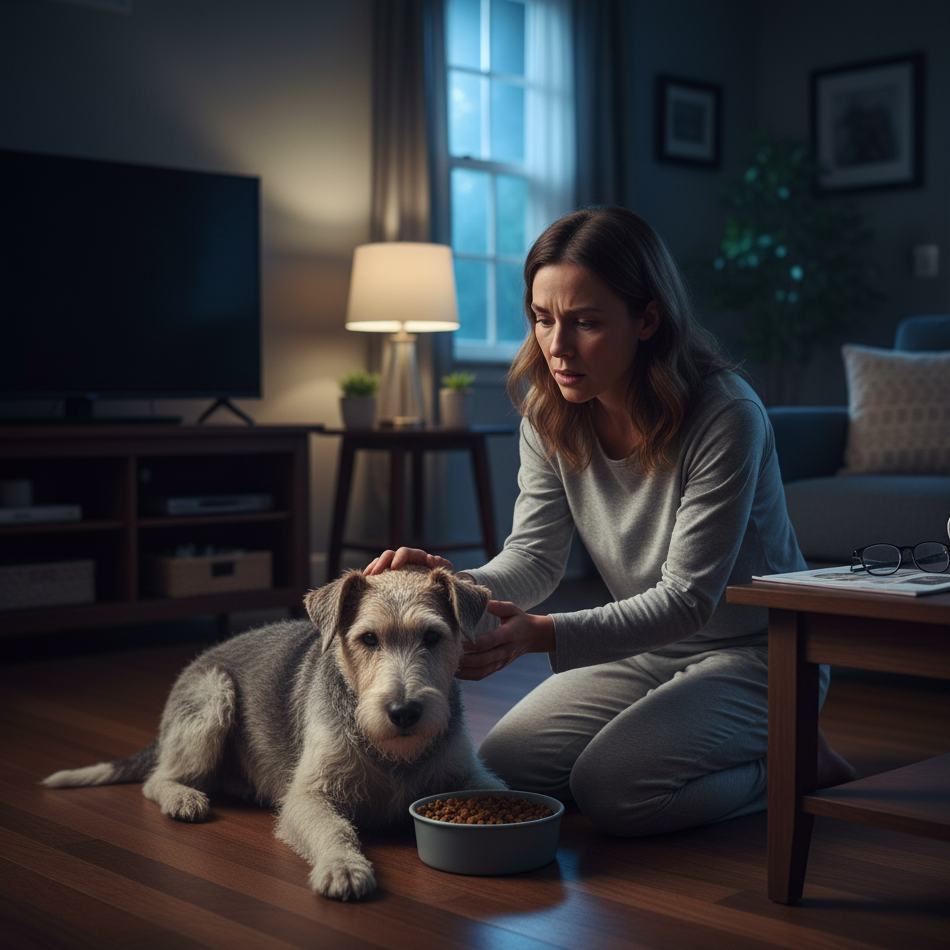When to Call the Vet: A Pet Parent's Guide
Every pet parent has been there. It's 11 PM, and your dog is acting strange. Or your cat hasn't eaten all day. Your mind races with questions: Is this serious? Should I rush to the emergency vet? Can it wait until morning?
These moments of uncertainty are stressful, and the stakes feel incredibly high when it comes to our beloved companions. Understanding when to seek veterinary care can help you make confident decisions that protect your pet's health while avoiding unnecessary panic.
Emergency Situations: Get Help Immediately
Some situations require immediate veterinary attention. If your pet experiences any of the following, contact an emergency veterinarian right away:
Difficulty breathing - labored breathing, gasping, or blue-tinged gums
Severe bleeding that doesn't stop within a few minutes
Unconsciousness or collapse
Seizures, especially if lasting more than a few minutes or occurring in clusters
Suspected poisoning or ingestion of toxic substances
Severe trauma from accidents, falls, or attacks
Inability to urinate or defecate, particularly in male cats (urinary blockage)
Bloated, distended abdomen with signs of distress (especially in large-breed dogs)
Extreme pain - crying, aggression when touched, or inability to move
Heatstroke symptoms - excessive panting, drooling, weakness, or elevated body temperature
These conditions can be life-threatening and require immediate in-person veterinary care. Don't wait or try to diagnose these at home.
Urgent But Not Emergency: Same-Day Care Needed
Some symptoms warrant veterinary attention within the same day, though they may not require an emergency visit:
Persistent vomiting or diarrhea (more than 2-3 episodes)
Lethargy or weakness that's unusual for your pet
Loss of appetite lasting more than 24 hours
Limping or lameness that doesn't improve
Eye injuries or sudden vision changes
Straining to urinate or defecate
Coughing or sneezing that persists or worsens
Skin issues with significant swelling, redness, or discharge
Behavioral changes - sudden aggression, confusion, or disorientation
For these situations, contact your regular veterinarian during business hours or seek same-day urgent care if symptoms worsen.
Monitor and Schedule: Can Wait for a Regular Appointment
Some concerns don't require immediate attention but should still be addressed with your veterinarian:
Mild scratching or itching without severe skin damage
Occasional soft stool (not persistent diarrhea)
Minor changes in eating habits that resolve quickly
Small lumps or bumps that aren't growing rapidly
Mild dental issues like bad breath or slight tartar buildup
Weight changes noticed over time
Routine preventive care - vaccinations, wellness exams, parasite prevention
Schedule a regular appointment within a few days to a week for these issues, and monitor your pet in the meantime.
The Gray Area: When You're Just Not Sure
Here's the truth: most pet health concerns fall into a frustrating gray area. Your dog is scooting across the floor. Your cat sneezed three times. Your puppy seems a little less playful than usual.
Are these signs of something serious, or just normal pet behavior? This is where many pet parents find themselves stuck, often turning to late-night Google searches that leave them more anxious than informed.
Questions to Ask Yourself
When you're uncertain, consider these questions:
Is this behavior completely new or unusual for my pet?
Are multiple symptoms occurring together?
Is my pet still eating, drinking, and acting relatively normal otherwise?
Has the symptom gotten worse over the past few hours?
Is my pet a senior, very young, or have pre-existing health conditions?
If you answer "yes" to several of these questions, it's better to err on the side of caution and seek professional guidance.
The Power of Instant Veterinary Guidance
What if you could skip the anxiety-filled Google searches and get real answers from a licensed veterinarian in seconds? That's exactly what modern telehealth solutions offer pet parents.
With instant access to veterinary professionals, you can:
Get immediate guidance on whether your pet needs in-person care
Receive expert advice on monitoring symptoms at home
Ask questions about minor concerns without the cost of an office visit
Access care outside regular business hours
Feel confident in your decisions about your pet's health
This doesn't replace emergency care or regular veterinary visits, but it fills the critical gap for those uncertain moments when you need professional reassurance.
Trust Your Instincts
You know your pet better than anyone. If something feels wrong, it probably deserves attention. Pet parents often sense when their companion isn't acting like themselves, even if they can't pinpoint exactly what's different.
Never feel embarrassed about seeking veterinary advice. Veterinarians would much rather you call about something minor than wait too long on something serious. Your concern comes from love, and that's never something to apologize for.
Building Your Pet Health Management System
Beyond knowing when to call the vet, having a comprehensive system for managing your pet's health makes everything easier:
Keep detailed records - vaccination history, medications, past illnesses, and behavioral patterns
Document symptoms - photos, videos, and notes help veterinarians assess situations more accurately
Know your resources - have contact information for your regular vet, emergency clinics, and telehealth services readily available
Set reminders - for medications, preventive care, and regular check-ups
Track patterns - noting when symptoms occur can reveal important information
The Bottom Line
Knowing when to call the vet isn't always straightforward, but you don't have to navigate these decisions alone. Whether it's a true emergency requiring immediate in-person care, an urgent concern needing same-day attention, or one of those gray-area moments when you just need guidance, having access to veterinary expertise gives you peace of mind.
Your pet depends on you to advocate for their health. By staying informed, trusting your instincts, and knowing where to turn for help, you're giving them the best possible care.
Remember: when in doubt, always reach out. A quick conversation with a veterinary professional can save you hours of worry and ensure your beloved companion gets exactly what they need, exactly when they need it.

